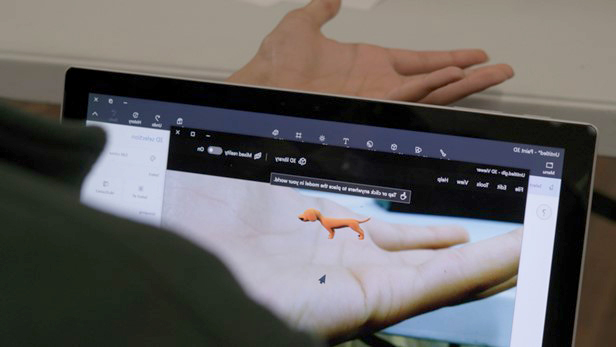Empowering Australia’s next generation with Indigenous cultural and digital literacy

Indigenous communities across Australia’s urban centers are looking to the past and the future to support local youth, with programs that strengthen cultural connection while preparing the next generation for a digital economy. First Nations people often face obstacles to entering the digital economy due to inadequate access to technology and the absence of culturally appropriate digital skills training. Early exposure to technology can help narrow the gap for underserved and Indigenous students.

Indigital and Microsoft are working together to grow cultural and digital literacy among schoolchildren in Western Sydney and Melbourne. The Indigital Schools program invites Indigenous Elders to share their cultural knowledge, history, and traditions with local schoolchildren. Students then bring what they’ve learned to life in a 3D virtual design project using technologies such as AR and Minecraft.
“Working with Microsoft to provide Western Sydney kids with these digital skills could lead to future employment. That means a real pathway to a sustainable career that allows them to live and work on Country and—most importantly—stay connected to their community.”
—Mikaela Jade, CEO and Founder of Indigital
Building Connection to Country in an inclusive digital learning environment
Indigital Schools is an Indigenous-designed digital skills training program for primary and high school students. In 2023, 90 teachers and 500 students participated in the Microsoft-supported Indigital Schools program in Western Sydney. Indigital also engaged the Bunurong community, indigenous to the Melbourne area, to develop curriculum for schools in Wyndham, Melbourne. This program has reached 360 students and 16 teachers across four local schools.
The Indigital Schools program features a creative new way to pass on digital skills and Indigenous cultural knowledge via curriculum-linked modules. Indigenous Elders share stories, language, and cultural knowledge with schoolchildren. Students then use augmented reality, animation, and audio to build a virtual representation of what they’ve learned from the Elders.
Mikaela Jade, a Cabrogal woman of the Dharug-speaking nation of Sydney and CEO and Founder of Indigital, describes the cultural learning process: “[The Elders] might be talking about the eels and the significance that they have to the Parramatta River and what they tell community about the seasons.” Students then bring what they learn to life by creating animated characters and stories using Paint3D, Minecraft, and Maya applications. “First they develop an object element or character in 3D and then they start building out the world that surrounds those 3D elements in Minecraft.” The 3D applications not only teach students coding skills, but also get them thinking conceptually about cultural questions. Says Jade: “They start thinking about what the landscape used to look like, who used to be there, what kind of characters or wildlife were there before. What significance did that wildlife have to that country?”
The 3D design format is very different from traditional education and tends to work well for students with learning differences. “It’s an opportunity for kids who are on the spectrum or have learning difficulties to really show what they can do,” Jade observes. “Some of the stuff that they come up with expressing themselves through this platform is phenomenal and they shine.” Upon completion of the program, students can upload their animated 3D creations and share them with friends and family via the Indigital platform.

Narrowing the digital gap for underserved students
The Indigital Schools program aligns with the organization’s mission to strengthen Connection to Country while bringing digital skills training to youth who might otherwise be excluded from a digital future
The tech sector is an area of growing opportunity in Australia and in Western Sydney in particular. Australia’s government and technology council have committed to create 1.2 million tech jobs by 2030. Exposure to digital technology means the youth who live here will have access to skilled jobs in their community when they enter the workforce. Jade explains, “Working with Microsoft to provide Western Sydney kids with these digital skills could lead to future employment. That means a real pathway to a sustainable career that allows them to live and work on Country and—most importantly—stay connected to their community.”


